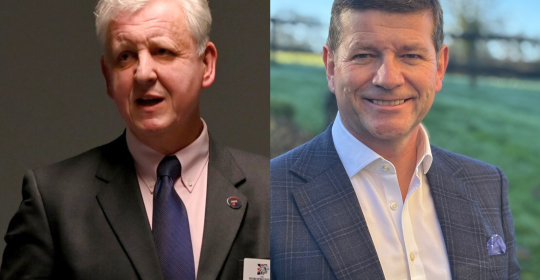ëStrategy workshopsí or ëaway daysí have become common place, but the findings of a new survey raise questions for UK organisations about how much real value they deliver.
Despite the expense and time spent on strategy workshops by senior management teams, few measure the impact of these events, according to the study published today by the Chartered Management Institute and the Advanced Institute for Management Research (AIM). Many respondents also report that these ëaway daysí fall short of expectations with 10 per cent saying the workshop they last attended failed to meet its objectives and over 40 per cent reporting either no or a negative impact on a range of measurable outcomes.
The report, called ëThe role and importance of strategy workshopsí, is the UKís first ever study into the effectiveness of strategy workshops. It reveals that almost 80 per cent of UK organisations host workshops at regular intervals. Nearly half (46 per cent) claim they occur at least once every twelve months.
However, despite their frequency, 4 in 10 also suggest they have no clear-cut impact on productivity and profitability and only one-third (34.1 per cent) think that strategy workshops improve innovation.
Yet the study suggests that, with sufficient planning, workshops can have a positive impact on business development. 49.9 per cent of organisations use workshops to challenge existing strategy and 47.4 per cent to generate new ideas. The findings also show that workshops can significantly improve internal working relationships and the overall understanding of corporate values.
According to the research, there are a number of areas where organisations could improve when it comes to strategy development:
- Preparation: the amount of time spent preparing for workshops is limited, suggesting that participants rely on their existing managerial experience when attending these events. As many as 37.2 per cent invest no more than a few hours preparing and some (8.4 per cent) no time at all.
- Participation: senior managers make up the majority of attendees at strategy workshops (76.3 per cent). However, only 33.2 per cent of workshops are attended by line managers and even fewer (226 per cent) by junior managers. This is despite evidence suggesting that participation in workshops can improve relationships and boost morale.
- Purpose: the triggers for holding workshops were found to be varied and include the development of new strategies (62.6 per cent) and increased competitor activity (10.3 per cent). However, the low usage of sophisticated analytical tools may be limiting the extent of systematic questioning that actually takes place.
Estimates of the cost for strategy workshops range between 10,000 and 50,000. It is clear from the report that the expenditure of strategy workshops depends on factors such as where they are held, the length of time they take and the level of managers involved. The overwhelming majority are two days or less (90 per cent), held off-site (73 per cent) and are led by senior directors (61.1 per cent).
ìOrganisations are clearly investing considerable time and resources in strategy workshops and with this comes high expectations. If the UK is to remain competitive, it is essential that this trend continues. However, the low levels of preparation needs be addressed if organisations are going to get better value from the processî says Mary Chapman, chief executive of the Chartered Management Institute.
AIM Senior Fellow Professor Gerard Hodgkinson, who led the study, says Given that the major purpose of many strategy workshops is to challenge existing strategy or come up with new ideas, it is a concern that these events are typically dominated by the top team with significantly less involvement of other stakeholders. The involvement of managers and employee representatives at all levels can help bring in new perspectives and can build a sense of ownership that is needed to encourage effective implementation.
The study is published by the Chartered Management Institute and AIM following research undertaken by Senior AIM Fellows Professor Gerard Hodgkinson of the University of Leeds and Professor Gerry Johnson of the University of Strathclyde, working in association with Professor Richard Whittington of the Sad Business School and Dr Mirela Schwarz of the University of Southampton. A total of 1,337 respondents participated in the research.
Strategy Workshops: a passing fad or delivering focus for top teams?

ëStrategy workshopsí or ëaway daysí have become common place, but the findings of a new survey raise questions for UK organisations about how much real value they deliver





